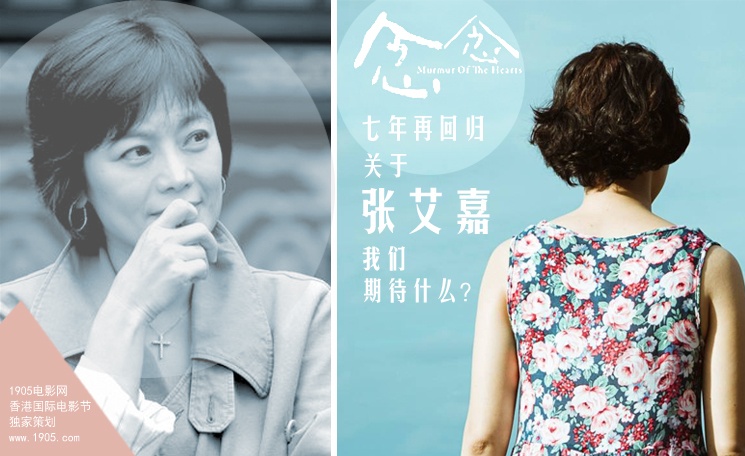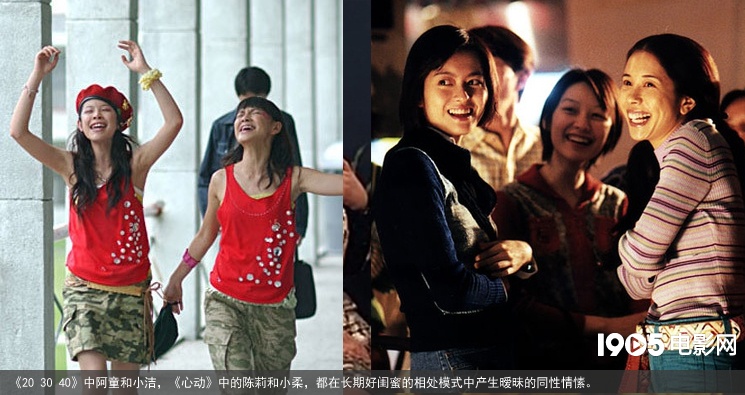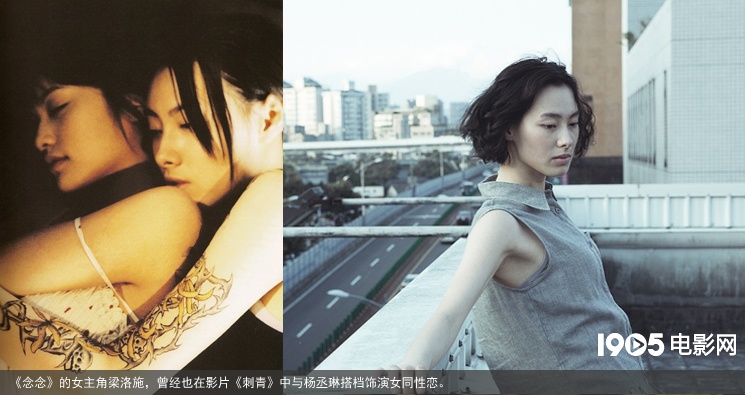After seven years of "Missing", what can we expect about Zhang Aijia?

Special feature of 1905 film network "When she was young, she was like a flower. Now she is like a tree, which allows many people to enjoy the cool in her shade." This is Hong Kong director Lin Yihua’s evaluation of Zhang Aijia. On March 23rd, director Zhang Aijia’s new film "Missing You" was shown as the opening film of the Hong Kong International Film Festival. With this film, Hong Kong actor Liang Luoshi, who had never met for a long time, also came back to share the warmth and coldness of the bustling city with Joseph Chang, Ke Yulun and Li Xinjie. When we talk about Zhang Aijia again, there are still too many topics worth talking about.
In his forty-two years as a filmmaker, Zhang Aijia has mastered multiple identities, leaving a deep mark on Hong Kong and Taiwan film circles. As an actress, she won two Golden Horse Awards in Taiwan and two Hong Kong Awards respectively. As a director, from "Little Girl Fishing" to "20 30 40" received rave reviews; As a predecessor, her artists such as Jacklyn Wu, Rene Liu and Li Xinjie are outstanding; As a singer, a song "The Price of Love" has been sung so far; As the owner of an entertainment company, she excavated Yang Dechang and helped Kenneth Bi, known as the "mother of the new wave of Taiwan Province movies"; Even the objects of her scandal are Tayu Lo, Yang Dechang and other industries.
She studied under Li Hanxiang and Hu Jinquan, cooperated with famous directors from Hong Kong and Taiwan, such as Ang Lee, Xu Anhua, Du Qifeng and Zhang Wanting. She was nominated for the Oscar for Best Supporting Actress for The Red Violin, which was co-produced by Canada and France. She was the first Asian actress to be selected as the focus of the Toronto Film Festival. Now, 23 years later, Zhang Aijia has once again become the "focus shadow" at the Hong Kong International Film Festival which she is familiar with.

Multiple Notes on Feminism: Idealization is Zhang Aijia’s film label.
When it comes to Zhang Aijia, I have to mention feminism. Her films usually feature women. But everyone has a set of opinions about feminism, and not every annotation is suitable for describing Zhang Aijia’s works. Traditionally, it is believed that the purpose of feminism is to resist and win the rights of men. However, the feminism embodied in Zhang Aijia’s films does not mean to belittle men, but rather reflects the mutual understanding and tolerance between the two sexes, so that men and women can realize their own existence value in an equal relationship. Just like in "Little Girl Fishing", in the face of her boyfriend Jiang Wei’s selfish and disrespectful love, Xiaoyu went from initial resignation to later obedience to inner judgment, and stayed to take care of the sick Mario. This is a woman’s affirmation of self-worth judgment, and it is also a sober reflection after losing herself in love.
At the end of 1970s and the beginning of 1980s, Hong Kong and Taiwan films, represented by Xu Anhua and Zhang Aijia, rose a feminist trend, which was greatly influenced by contemporary European and American films. Kramer vs. kramer, which won the Oscar in 1979, catered to the new family model of women’s liberation movement, and was widely welcomed by women. In the same year, Tess directed by roman polanski, Deep in My Heart starring sally field in 1984 and many other films triggered worldwide discussions on women’s movies. Zhang Aijia, who has settled in the United States with her mother since childhood, has its natural advantages in feeling the new wave.
At the same time, there were filmmakers who showed obvious feminist characteristics, as well as Hong Kong directors Xu Anhua and Zhang Wanting. People always liked to compare these three female directors together. However, unlike Xu Anhua’s cold documentary and Zhang Wanting’s euphemistic dream, Zhang Aijia’s handling of female roles was more idealistic. Even if she suffered more hardships, the heroine would eventually get out of the knot and have a cool and positive attitude and a beautiful and stable life. Lily in 20 30 40 experienced her husband’s betrayal and divorce, although she tried to find a different partner. The young and gentle gentleman in Heartbeat, although he has been missing out all his life and can’t get married, both of them live a superior life and turn their regrets into precious memories of life; In Favorite, Wu Mingbao and Bai Yun fell in love with the same man. Finally, Bai Yun left with her child. After decades, the two women met again to recount their past grievances, and there was no more uproar. The ending of Zhang Aijia’s works will never make people feel desperate.

AUO above lover not full captures delicate and ambiguous same-sex feelings.
Zhang Aijia once mentioned in an interview: "When girls grow up, there must be intimate relationships between women. Such vague feelings are earlier than boys. Later, we will all get married and have children. This feeling will not have any impact on our marriage." The ambiguous feelings between the same sex are also delicate and touching under the lens of Zhang Aijia, such as Chen Li and Xiao Rou in Heart, such as Xiaojie and A Tong in 20 30 40.
Zhang Aijia’s description of same-sex feelings is more of a hazy and beautiful feeling mixed between friendship and love, but the audience can feel it from the picture. The weight of this kind of memories of youth is enough to be remembered and treasured for a lifetime. In Heartbeat, Chen Li, who has reached middle age, cried and told her husband Haojun to leave, and finally admitted that she had always loved Xiaorou. She and Haojun silently loved the same woman. In "20 30 40", Xiaojie and A Tong bid farewell to the tearful kiss at the airport, which is not only a farewell, but also a beautiful ending for the beautiful friendship gained during the pursuit of "Star Dream".

Some of this concern for same-sex feelings is very straightforward. For example, in Hainan Chicken Rice directed by Kenneth Bi, Zhang Aijia plays Jane, the mother of three gay sons, who has broken his heart about the sexual orientation of the three sons, but also pays attention to the expression of girlfriends’ feelings. For example, in Yang Dechang’s One Day at the Beach, Zhang Aijia not only has a heart-to-heart relationship with the pianist played by Hu Yinmeng, the ex-girlfriend of his brother, but also has a good girlfriend around him. Same-sex love, appearing in Zhang Aijia’s films, is euphemistic, delicate, fresh and natural between friends and lovers.
Liang Luoshi, the star of this new work Niannian, once played a homosexual with Rainie Yang in Tattoo, and his handsome tattoo of flowers on the other side is still impressive. This time, I collaborated with Zhang Aijia to "Calm down, slow down" in Missing. Liang Luoshi plays a young female artist, talking with her past, discussing affection and love. Two women who have had a different perspective on same-sex feelings get together to create, which is also considered as a gas field.